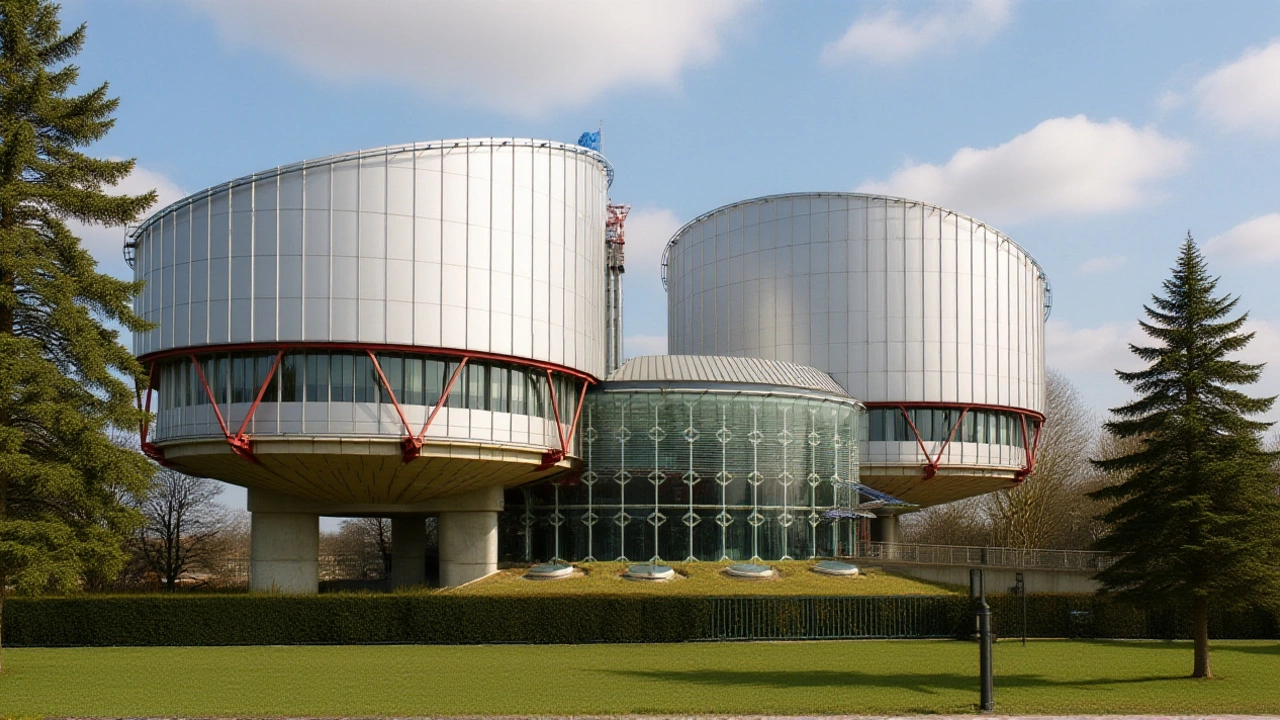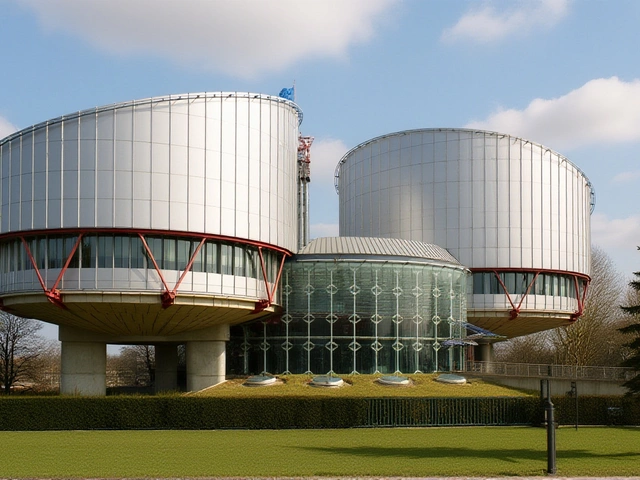
When George Peretz, King's Counsel and senior partner at Society of Labour Lawyers, published his analysis on LabourList in September 2025, he warned that a ECHR withdrawal would instantly jeopardise the United Kingdom’s security and judicial links with the European Union.
The warning comes amid a growing political chorus questioning the value of staying in the European Court of Human Rights. Peretz’s piece, the second of a three‑part series, spells out exactly how the Trade and Cooperation Agreement (TCA) – the post‑Brexit framework that keeps trade, law‑enforcement and intelligence cooperation humming between the United Kingdom and the EU – could be ripped apart in a matter of weeks.
Why the ECHR Matters to the TCA
The TCA contains a whole chapter dedicated to "security and law‑enforcement cooperation". Those clauses are not just bureaucratic niceties; they underpin extradition pathways, the sharing of passenger‑data, and joint counter‑terrorism operations. Peretz notes that the EU treaty language treats the ECHR as a "foundational" principle – a sort of legal glue. If the UK were to quit the court, the EU could invoke the "serious breach" clause and suspend those security sections immediately.
"Large portions of the TCA dealing with critical security and judicial cooperation matters could be suspended straight away," Peretz wrote. The fear is not merely a pause – the EU reserves the right to give the UK a twelve‑month notice to terminate the whole agreement. In practice, that would thrust the UK into a de‑facto “no‑deal” scenario with the continent, a prospect that economic analysts warn could shave billions off the UK’s GDP.
Potential Fallout with European Neighbours
Peretz illustrates the ripple effect with concrete examples. Take France, the Netherlands or Germany. These countries currently coordinate closely with the UK on “small‑boat” interdiction – the effort to stop illegal crossings across the Channel.
"It is hard to see that France, the Netherlands, or Germany would be interested in cooperating with the UK to stop small‑boat launches, or to take back those who have arrived on small boats, if the UK has left the ECHR," Peretz argues. The loss of that cooperation would not only strain border security but also erode trust built over decades of joint patrols and intelligence sharing.
Immigration Control: The Limited Role of the ECHR
Some commentators claim the ECHR is the main barrier to tougher immigration rules. Peretz points readers to a forthcoming analysis by Adrian Berry, King's Counsel, who will argue that the court’s influence on immigration policy is actually modest.
Even if Berry’s view holds, Peretz concludes that “from an immigration control and security perspective leaving the ECHR would be a massive act of self‑harm.” The logic is simple: while the court may not dictate day‑to‑day visa decisions, its existence signals a broader commitment to shared European standards that facilitate seamless collaboration on border enforcement.
Economic and Diplomatic Consequences
The financial stakes are stark. A full TCA termination would mean the UK losing the tariff‑free access to EU markets that many manufacturers rely on. The Office for National Statistics recently projected that a "no‑deal" Brexit could cost the UK anywhere between £25 billion and £35 billion per year.
On the diplomatic front, the EU could use the ECHR exit as leverage in unrelated negotiations – from fisheries to digital services – further isolating London on the continent.
What Comes Next? Political Reactions and Legal Options
Labour MPs have already taken note. In a debate on 2 October 2025, MP Emily Jones cited Peretz’s analysis, urging the government to “respect the human‑rights framework that underpins our security agreements.” The Conservative government, however, remains divided, with some ministers arguing that a “British‑first” approach could eventually replace the ECHR’s role.
Legally, the UK could attempt to carve out a bespoke human‑rights regime outside the Council of Europe, but critics argue such a patchwork would lack the credibility needed to satisfy EU partners.
Key Facts
- Article published: September 2025 on LabourList.
- Primary author: George Peretz KC, senior partner at Society of Labour Lawyers.
- EU may suspend security parts of the TCA immediately after a UK ECHR exit.
- Full TCA termination possible with 12‑month notice, leading to "no‑deal" terms.
- Potential economic loss: £25‑£35 billion annually.
Frequently Asked Questions
How would leaving the ECHR affect UK‑EU security cooperation?
The EU treats the ECHR as a prerequisite for the security and judicial chapters of the Trade and Cooperation Agreement. Withdrawal would trigger an immediate suspension of extradition mechanisms, intelligence sharing, and joint patrol arrangements, effectively crippling day‑to‑day cooperation on counter‑terrorism and cross‑border crime.
Could the UK replace the ECHR with a home‑grown human‑rights system?
In theory, Britain could devise a national charter, but EU partners have repeatedly stressed that any substitute must be “substantially equivalent” to the ECHR. Without that equivalence, the EU would still have grounds to suspend or terminate the TCA.
What impact would a TCA termination have on the UK economy?
A full termination would revert trade to World Trade Organization rules, imposing tariffs on many goods and services. Analysts estimate annual losses of £25‑£35 billion, hit hardest in automotive, aerospace and food‑drink sectors that rely on friction‑less EU market access.
Why do France, the Netherlands and Germany matter for UK border security?
These neighbours run the majority of Channel crossing interceptions and share real‑time data on vessel movements. Losing their cooperation would force the UK to patrol a vastly larger area with fewer resources, weakening its ability to stop illegal small‑boat arrivals.
What does Adrian Berry KC say about the ECHR’s role in immigration?
Berry’s upcoming LabourList piece argues that the ECHR has a “very limited impact on immigration”, meaning that most visa and asylum decisions are governed by domestic law and EU‑UK agreements. Nonetheless, he acknowledges that the court’s broader human‑rights framework still underpins cross‑border enforcement.


Comments
Post Comment